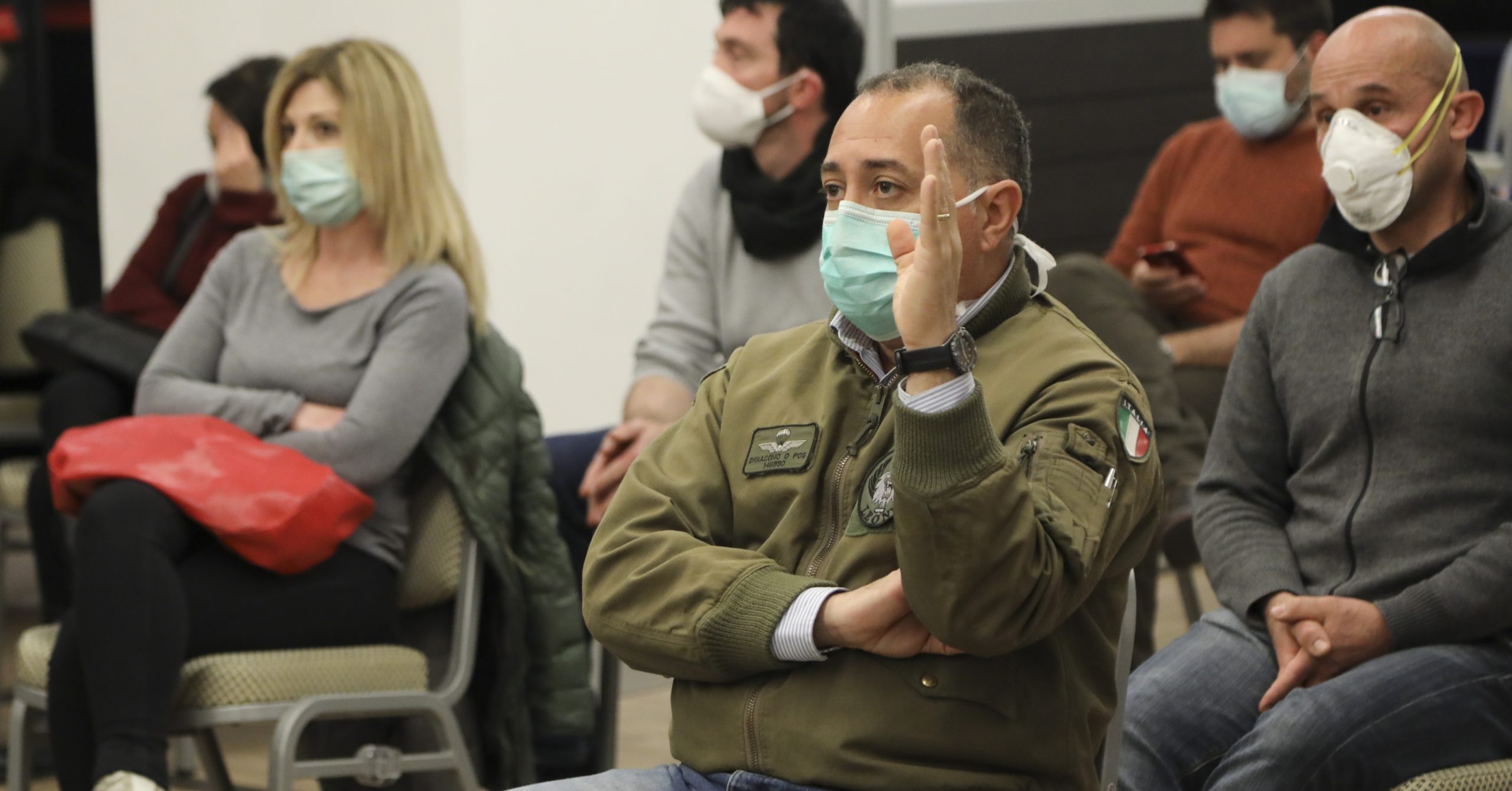Opponents of the use of medical masks in everyday life claim that a scientist from one of the most respected universities in the world recently joined their opinion. We checked whether this is actually true.
In mid-April 2021, the news quickly spread across the United States. Towards the end of the month, posts about the research began to appear on Russian-language accounts on social networks, in particular in Instagram And "VKontakte". Internet users who oppose wearing masks believe that the authority of one of the the best universities around the world will help convince others that they are right.
Social media users spreading information about the “Stanford study” refer to the work of Baruch Weinshelboim. According to information from his article, published in November 2020, Vainshelboim works as an exercise physiologist in the cardiology department of the Veterans Affairs Palo Alto Health Care System, but their representative reported AP that such a person is not on their staff. The article indicates an affiliation with Stanford University through a slash - on its website the surname is Vainshelboim meets only as a co-author of several articles. “Stanford University never hired Baruch Weinshelboim,” stated Director of External Communications at Stanford Medical School Julia Gracious. She also noted that the man was a visiting researcher at the university in 2015 “on matters unrelated to this article.”
It is also worth paying attention to the magazine where Vainshelboim’s article about the dangers of wearing masks was published. Medical Hypotheses differs from established scientific journals in that it explicitly states a willingness to publish “radical, speculative, and fringe scientific ideas as long as they are coherently expressed.” On the SJR scientometric portal about this journal it saysthat his editorial board accepts materials with interesting theoretical assumptions, even if they lack experimental confirmation. Such studies published in Medical Hypotheses include: article 2008 on the connection between ejaculation and the treatment of nasal congestion and Job 2004, the author of which examines the connection between wearing heels and the development of schizophrenia.
According to a misspelled abstract, Weinshelboim's paper "comprehensively summarizes the scientific evidence on mask wearing in the era of COVID-19, providing useful information for public health and decision-making." The text of the article boils down to three main arguments: firstly, masks do not reduce the risk of contracting coronavirus; secondly, masks cause hypoxia (low oxygen levels) and hypercapnia (high carbon dioxide levels) in humans; thirdly, constantly wearing masks can lead to unpleasant physiological and psychological problems in the future.
Although Vainshelboim cites a number of sources for his article, his own arguments often contradict what is written in these sources. Thus, the statement “clinical evidence further casts doubt on the effectiveness of face masks in blocking person-to-person transmission or infection” is accompanied by a reference to article in the journal Nature, which says the exact opposite. Talking about the possible negative consequences of wearing masks, the author even quotes another article from Medical Hypotheses. Vainshelboim also gives his arguments regarding conventional medical masks, citing studies dedicated N95 respirators. They really worse allow air to pass through than regular masks, but there is no reason to talk about a serious impact on health.
Mostly not true
- https://www.snopes.com/fact-check/stanford-nih-mask-study/
- https://www.politifact.com/factchecks/2021/apr/16/diamond-and-silk/medical-hypotheses-journal-article-lacks-evidence-/
- https://apnews.com/article/fact-checking-629043235973
- https://factcheck.kz/health/chto-ne-tak-so-stenfordskim-issledovaniem-o-neeffektivnosti-i-opasnosti-masok/
If you find a spelling or grammatical error, please let us know by highlighting the error text and clicking Ctrl+Enter.







